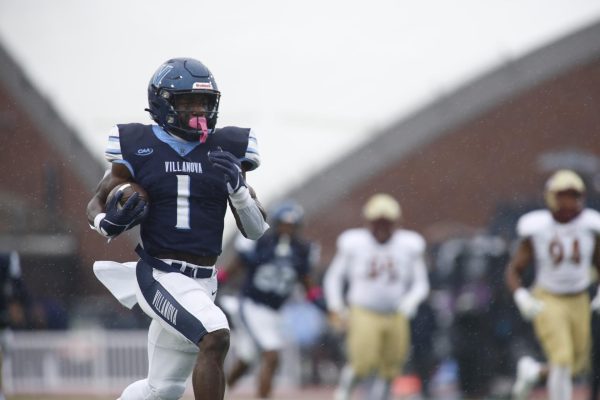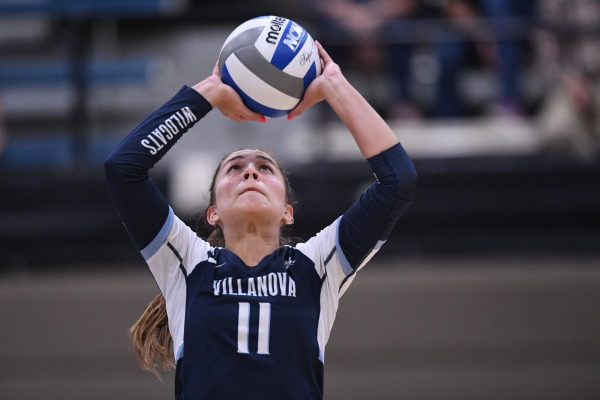Connecticut Poet Laureate reads selections as part of festival
April 7, 2006
Marilyn Nelson read selections of her poetry in the President’s Lounge of the Connelly Center on March 23 as part of Villanova’s eighth annual Literary Festival.
An audience of about 50 people listened to her poems in a sort of her awed silence.
The reading began with an introduction by Dr. Crystal Lucky, director of the Africana Studies Program and associate professor in the English Department. Lucky highlighted Nelson’s many accomplishments and poetic influences, particularly her emphasis on black culture.
Nelson, an African American poet, is “the daughter of a thousand proud fathers,” Dr. Lucky said. “She has a particular relationship to history and an understanding of her place among the descendents of important black people.”
With such praise lingering in the air, Nelson began to entertain her audience with imagery, rhythm and anecdotes.
She performed a series of poems from her most recent work, “Fields of Praise,” as well as from her two upcoming projects, “Through the Eyes of Venture Smith” and “Prudence Crandall’s School for Young Ladies and Little Misses of Color.”
All three of these collections reveal the influence of race on Nelson’s work.
This influence stems from Nelson’s personal history. As a daughter of one of the last Tuskegee airmen, Nelson grew up on a number of military bases. Her poetry consequently deals with the difficult subject of race relations in her family history, in the armed services and in religion.
The theme of race and ethnicity was evident not only in Nelson’s written word, but also in the black dialect that she used to indicate speakers within her predominantly formal poetry.
In the poem “Diverne’s Waltz,” for example, Nelson read, “Crazy damn white man, acting like a fool.”
The poems elicited emotional responses in the audience.
“Her work really touched me,” one African American student said. “I could really relate to the struggles of being black in a mostly white society.”
Perhaps her most poignant poem, however, was the last one she read: “A Wreath for Emmett Till.” This poem narrates the lynching of a 14-year-old boy from Chicago while he was visiting relatives in Mississippi. Emmett Till’s death helped spur the civil rights movement.
“Her memorial gives voice to the pain experienced by a nation,” Dr. Lucky said, “and to a mother who had her son returned to her in a pine box so horribly battered and water-logged that someone needed to tell her that the sickening sight in front of her was her son.”
The poem was written as a heroic crown of sonnets: 15 sonnets linked by their first and last lines. Its influence was as profound on the poet as it was on the audience.
“Emmett Till’s name still catches in my throat,” Nelson read from the sonnet.
“A Wreath for Emmett Till” is just one of nearly 15 volumes of poetry that Nelson has written.
In recognition of the quality and quantity of her poetry, Nelson was invited as the fourth of six contemporary writers to visit Villanova as part of the Literary Festival. The other writers included in the series are authors Khaled Hosseini, David Means and Edmund White, as well as poets Lawrence Joseph and Anne Waldman.












